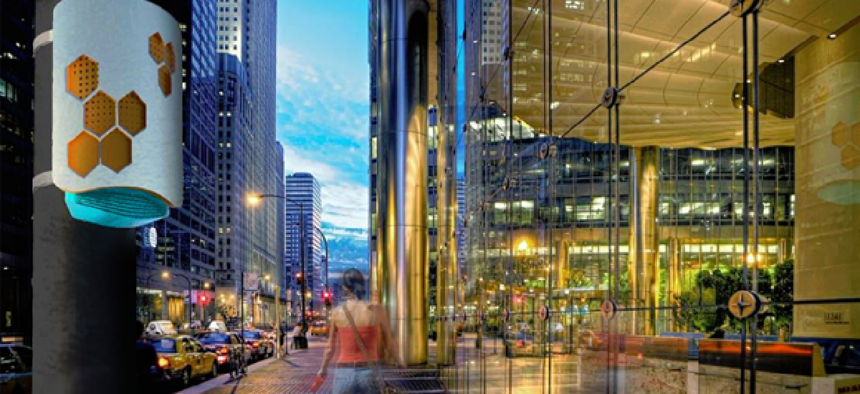NSF funds an 'Array of Things' for environmental study in Chicago


Connecting state and local government leaders
The $3.1 million project will put 500 sensor arrays on street light poles throughout the city.
The University of Chicago is getting $3.1 million from the National Science Foundation to develop a community technology platform that will measure environmental data to assess Chicago’s fitness.
According to a NSF, the grant will fund the development and installation of 500 Array of Things sensors that will be placed on streetlight poles in coordination with city agencies.
The sensors will contain instruments to measure temperature, barometric pressure, light, vibration, carbon monoxide, nitrogen dioxide, sulfur dioxide, ozone, ambient sound intensity, pedestrian and vehicle traffic and surface temperature. The data collected will be publicly available through the City of Chicago Data Portal and other open data platforms.
Fifty sensors will be placed early next year; all 500 are projected to be in place by the end of 2017.
The resulting data will help public health researchers study the relationship between diseases and environmental conditions. Climate researchers will be able to view higher-resolution data, allowing them to study urban microclimates. And social scientists will be able to study the dynamics of urban activity in public spaces and its effect on economics and livability.
The sensors are designed to not collect personal data or private information, and an oversight committee of city officials, researchers and cybersecurity experts will regularly review the project, as well as additional technologies that could be developed and added to the project.
“The Array of Things will be the first research infrastructure to allow researchers to rapidly deploy sensors, embedded systems, computing and communications systems at-scale in an urban environment,” NSF's head of Computer and Information Science and Engineering Jim Kurose said in announcing the funding.
Chicago started putting sensors around the city to collect data last year as part of their big data initiative but was searching for funding to expand on the initiative.




